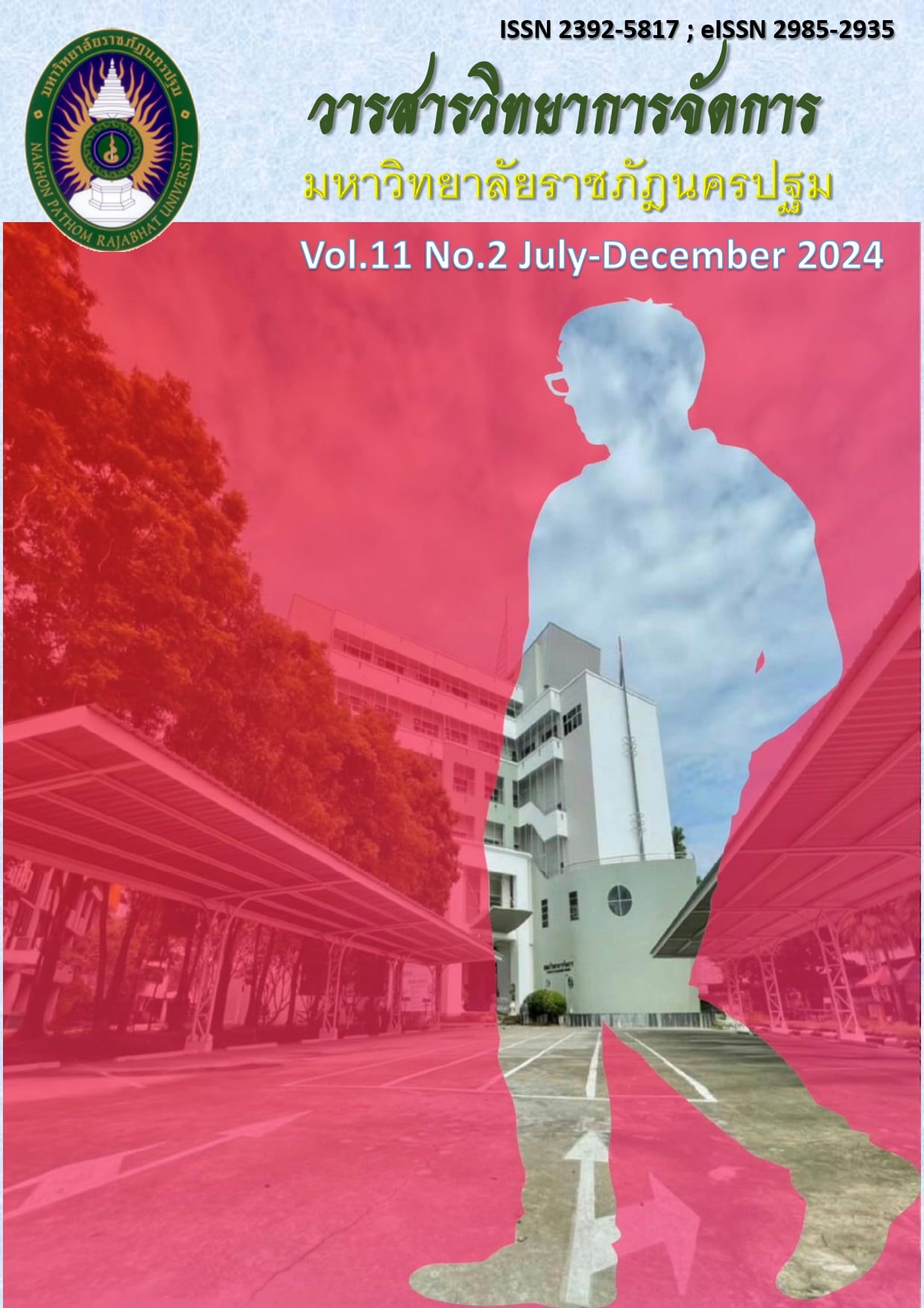Personnel management in the digital era 5.0 to increase work capability in the organization
Main Article Content
Abstract
Academic articles The author intends to write this story in order to present personnel management in an era of change with technological systems helping to manage personnel in organizations. Personnel management is a series of processes. From setting personnel management policies, planning manpower, recruiting and selecting, maintaining personnel, developing personnel Always up-to-date, controlling, evaluating performance. by personnel management in the digital age Stepping into the digital platform era, using the word partner instead of employee Organizations that have changed in the determination of digital work performance by humans into the world of modern human resource management technology. The trend of change caused by digital technology in the 5.0 era, which is the era of the intelligent society where the cyber world and the world of Reality seamlessly integrates information, networks, and scientific logic with social science. Because the system works using traditional skills That may not be desired anymore. Application of technology in personnel management Multicultural working skills, empathy for each other Creating work experiences that are in line with your lifestyle and flexible working according to the individual for the benefit of work efficiency and long-term benefits to the organization
Article history: Received 14 February 2024
Revised 1 November 2024
Accepted 4 November 2024
SIMILARITY INDEX = 14.05 %
Article Details

This work is licensed under a Creative Commons Attribution-NonCommercial-NoDerivatives 4.0 International License.
The views and opinions of the article appearing in this journal are those of the author. It is not considered a view and responsibility of the editorial staff.
References
ธวัชชัย สมอเนื้อ. (2565). การจัดการทรัพยากรมนุษย์ในการทำงานที่มีผลต่อพฤติกรรมในการ ปฏิบัติหน้าที่ของบุคลากรในองค์กร. มจร.เลยปริทัศน์, 3 (1), 178-187.
ประภาพรรณ กัณทวงษ์ และนิศารัตน์ โชติเชย. (2565). การจัดการทรัพยากรมนุษย์ในการก้าวสู่ยุค Digital HR. วารสารวิทยาลัยบัณฑิตเอเซีย, 12(1), 106-114.
อิงอร ตันพันธ์, เอกสิทธิ์ สนามทอง, และ ทศพร มะหะหมัด.(2566).การสังเคราะห์นวัตกรรมงานการจัดการทรัพยากรมนุษย์ผลกระทบต่อยุคดิจิทัลในประเทศไทย.วารสารการบัญชีและการจัดการ มหาวิทยาลัยมหาสารคาม.15 (3), 198–205.
Amalia, M. R. (2024). The Impact of Digital Era 4.0 Transformation on Human Resources Management. Management Studies and Business Journal, 1(1), 89-98.
Deep Dave (2023) Industry 5.0 or Industry 4.0S? [Online]. Retrieved June 13, 2023 from: https://www.linkedin.com/pulse/industry-50-40s-deep-m-dave
Dickens, L. (1998). What HRM means for gender equality. Human Resource Management Journal, 8(1), 23.
Garg, V., and Goel, R. (Eds.). (2021). Handbook of Research on Innovative Management Using AI in Industry 5.0. Pennsylvania, IGI Global.
Jiang, S. Li, Y. Lu, Q and Hong, Y. (2021). Policy assessments for the carbon emission flows and sustainability of Bitcoin blockchain operation in China. Nature Communications, 12(1).1-10.
Kandula, S. R. (2013). Competency-based human resource management. New Delhi: PHI Learning Pvt. Ltd..
Khaled, G., and Alena, F. (2021). Industry 4.0 and human resource management in the hotel business. Human Progress, 7 (2), 1.
Khan, S., Thirunavukkarasu, K., AlDmour, A., and Shreem, S. S. (Eds.). (2021). A Step towards Society 5.0: Research, innovations, and developments in Cloud-based computing technologies. Florida, CRCPress.
Kotler, P., Kartajaya, H., and Setiawan, I. (2021). Marketing 5.0: Technology for humanity. New York: John Wiley and Sons.
Lambiotte, R., and Kosinski, M. (2014). Tracking the digital footprints of personality. Proceedings of the IEEE, 102 (12), 1934-1939.
Mitchell, B., and Gamlem, C. (2017). The big book of HR. Massachusetts: Red Wheel/Weiser.
Mourtzis, D., Angelopoulos, J., and Panopoulos, N. (2022). A Literature Review of the Challenges and Opportunities of the Transition from Industry 4.0 to Society 5.0. Energies, 15 (17), 6276.
Mubarik, M. S., Shahbaz, M., and Abbas, Q. (2022). Human capital, innovation and disruptive digital technology: A multidimensional perspective. London: Taylor and Francis.
Paauwe, J. (2004). HRM and performance: Achieving long-term viability. Oxford Press, USA.
Paauwe, J., and Farndale, E. (2017). Strategy, HRM, and performance: A contextual approach. Oxford: Press.
Pilevari, N. (2020). Industry revolutions development from Industry 1.0 to Industry 5.0 in manufacturing. Journal of Industrial Strategic Management, 5 (2), 44.
Thite, M. (Ed.). (2018). e-HRM: Digital approaches, directions and applications. London Routledge.


